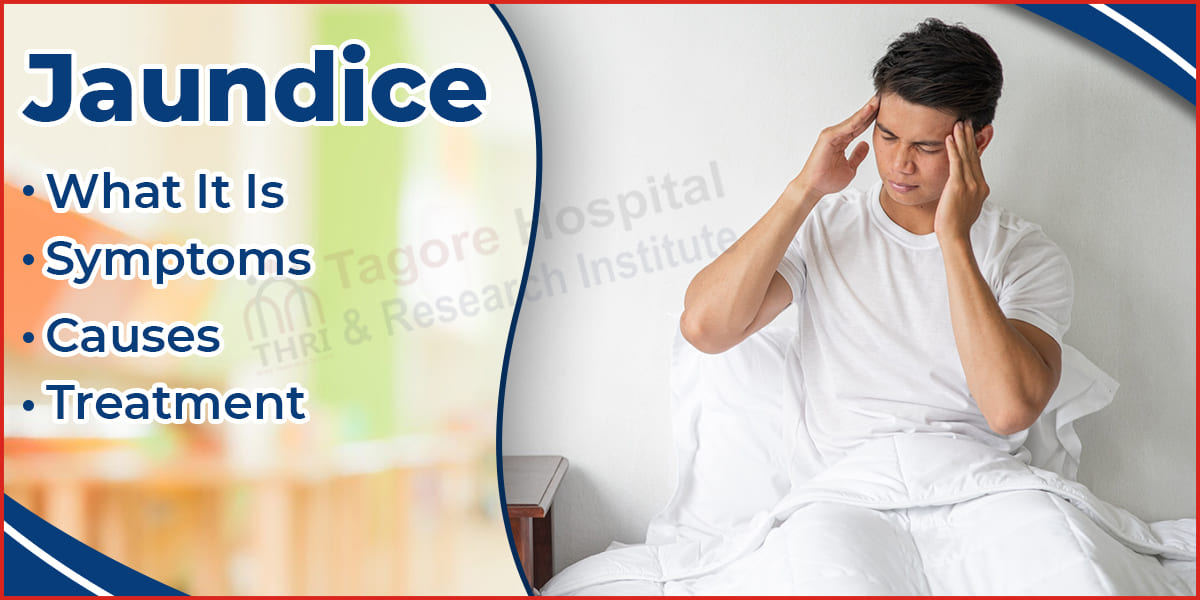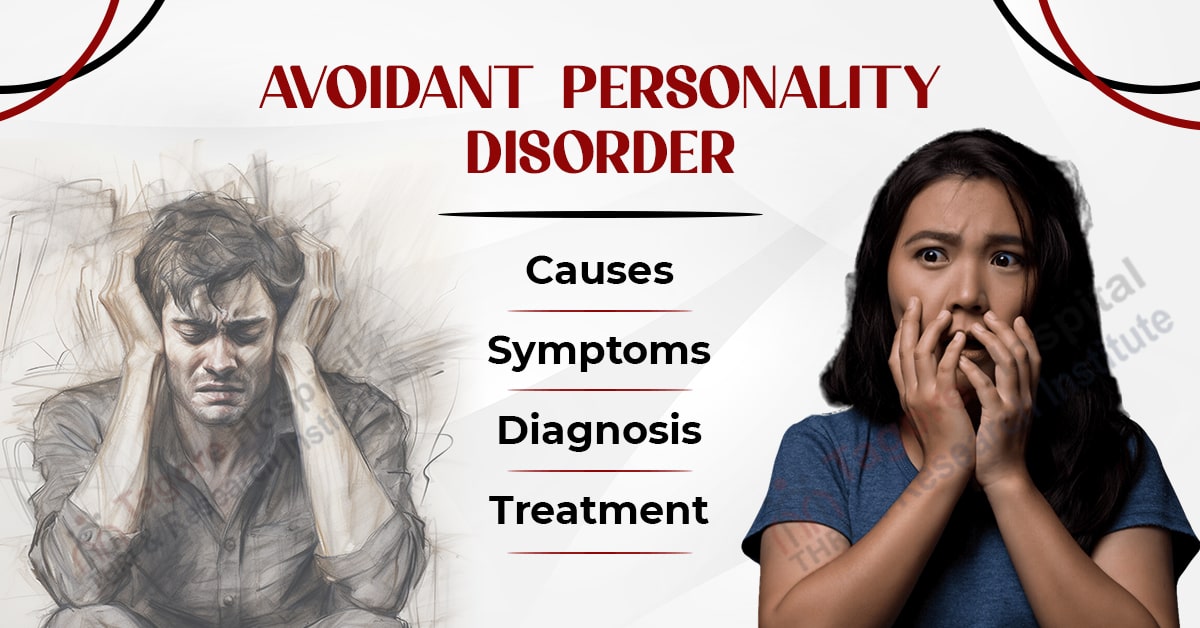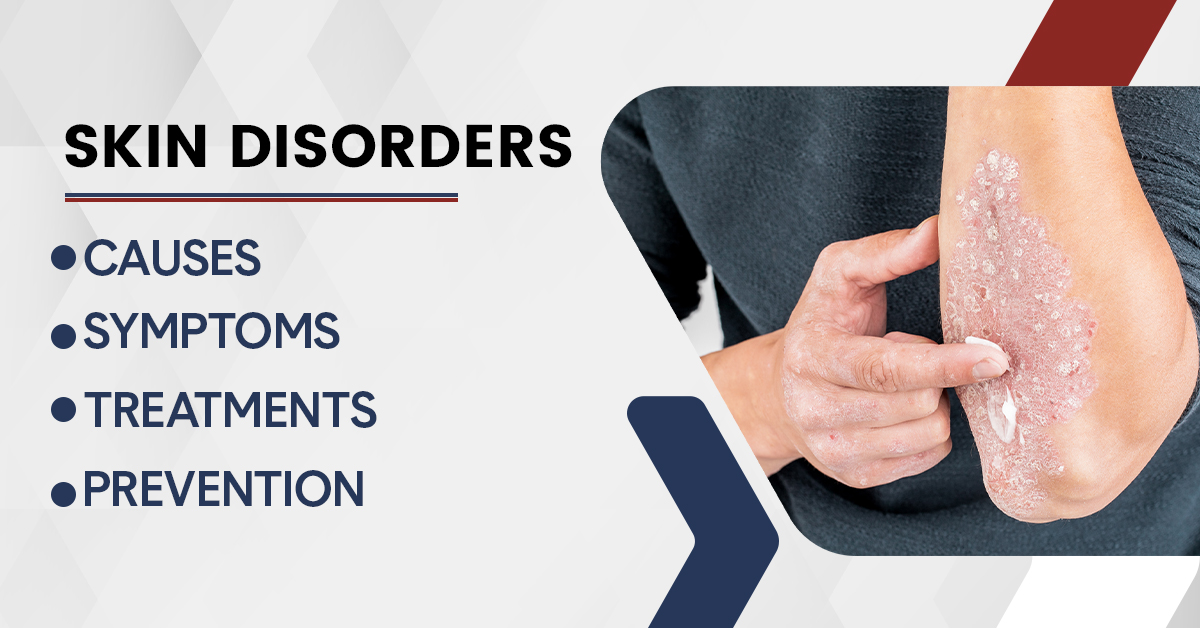- By Tagore Hospital
- Posted August 13, 2025
Introduction
Jaundice is an uncommon but often misunderstood ailment that can affect people at any age-from a newborn baby to an older adult. Indicators are there that something could be wrong inside the body, especially the liver, the gallbladder, or the red blood cells. This blog shall discuss what jaundice is, its causes, distinguishable features, hazards in case untreated, and options for treatment.
What Is Jaundice?
Jaundice is the yellowing of skin, whites of the eyes, and mucous membranes due to an increase in the bilirubin content in the blood. Bilirubin is a yellow pigment made from the breakdown of red blood cells. Normally, bilirubin undergoes processing in the liver and is excreted via bile from the body.
When the liver fails to metabolize or excrete bilirubin or when there is an abnormally large amount synthesized, buildup of bilirubin occurs inside the blood-a condition known as jaundice. While the yellowing is not a disease itself, it is an indication that some underlying condition, mostly of the liver or the blood, exists.
What Causes Jaundice?
Jaundice gives away its secret treatment:...Many things can cause jaundice. To know and understand the others, it helps to know that bilirubin is processed in the liver before excretion. Anything that affects this process, in any stage-anterior, concurrent, or subsequent-can cause jaundice.
- Pre-Hepatic Causes (Before the Liver)
Here, more red blood cells are destroyed than usual, with a large amount of bilirubin produced. The liver, however, cannot clear away this quickly:
- Hemolytic anemia
- Malaria
- Sickle cell disease
- Thalassemia
- Causes in Hepatic (Inside Liver)
In the liver problems affecting processing of bilirubin usually are:
- Various kinds of Hepatitis (A, B, C, etc.)
- Alcoholic liver disease
- Non-alcoholic fatty liver disease
- Liver cancer
- Liver damage from drugs or toxins
- Cirrhosis
- Causes Post-Hepatic (After the Liver)
Mostly due to obstruction in the bile duct preventing elimination of bilirubin.
- Gallstones
- Pancreatic cancer
- Bile duct tumors
- Cholangitis
You can read also:-Allergies in Children: Causes, Symptoms & Care
How Do You Know If You Have Jaundice?
Yellowing of the skin and eyes is considered one obvious symptom of jaundice. Other symptoms might be there too. Depending on the cause, specific symptoms might differ.
Typical Symptoms:
- Yellowing of skin and eyes
- Dark-colored urine
- Pale or clay-colored stools
- Itchy skin
- Fatigue and weakness
- Loss of appetite
- Nausea or vomiting
- Abdominal pain, particularly on the upper right side
If you observe any of these symptoms, especially when there is yellowing of the eyes or skin, please consult your physician for further testing.
How Is Jaundice Treated?
1. Diagnosis
Prior to beginning treatment, it is essential to find out the cause of jaundice. Basically, doctors begin with physical examination, blood tests (bilirubin, liver enzymes, and blood count), urine tests, imaging tests such as ultrasound, CT scan, or MRI, and liver biopsy when the case has become severe or is unclear.
2. Treatment Options
The treatment depends on what causes the jaundice.
a. If a liver condition is implicated:
- Viral hepatitis may need antivirals and rest.
- Alcoholic liver disease needs the cessation of alcohol immediately, as well as therapeutic management.
- Fatty liver disease is largely reversible by diet and exercise, ideally with weight loss.
- Autoimmune liver conditions might be treated through corticosteroids or immunosuppressants.
b. If it is related to mechanically obstructed bile duct:
- Gallbladder stones may require surgical or endoscopic removal.
- Tumors may be taken out by surgery and/or treated with chemotherapy or radiation.
- Obstructed bile ducts may be cleared by placing a stent or surgical procedure.
c. If it is in a newborn:
Neonatal jaundice is common and is mostly treated by phototherapy or, in more severe cases, exchange blood transfusion.
You can read also:-Brain Tumor: Types, Risk Factors, Symptoms, and Treatment
What Are the Risks of Not Treating Jaundice?
The risks of leaving untreated jaundice are far-reaching, depending on the causal factors:
1. Liver Failure
With considerable liver damage (as in hepatitis or cirrhosis), the liver ceases to function normally, toxins build up in the body, and death will ensue.
2. Brain Damage in Infants (Kernicterus)
High levels of bilirubin in the serum of newborns can cause a specter that can promote a grave and rare disorder called kernicterus-brain damage with permanent disability or rupture of auditory functions-with or without cerebral palsy.
3. Chronic Disease
Chronic hepatitis, or untreated bile duct obstruction, can cause permanent damage, thus creating long-term health concerns such as cirrhosis or liver cancer.
4. Infective and Inflammatory
The blocked bile ducts can cause infections (cholangitis) which can spread very fast and become fatal in the absence of timely treatment.
5. Bleeding Disorders
Since the liver also produces clotting factors, liver failure can lead to internal bleeding or easy bruising.
Cause Type & Present Common Treatment options
- Pre-hepatic: Treatment of underlying blood disorders, management of anemia
- Hepatic (liver): Antivirals, lifestyle changes, liver support, transplant if needed
- Post-hepatic: Surgical operation, placement of stents, treatment of tumors
- Newborn jaundice: Phototherapy, fluid, and exchange transfusion
Generally, when treating jaundice, the patient is also cared for with hydration and nourishment, resting, etc.
Conclusion
Jaundice is often an indication of health disturbances, sometimes slight and occasionally severe. In Tagore Hospital, Jaipur, early diagnosis, proper evaluation, and individualized treatment are stressed for the best patient outcome.
Our team of doctors, hepatologists, and diagnostic specialists is backed by state-of-the-art technology to diagnose the root of jaundice and then treat those patients with compassion. From liver disorders to bile duct obstructions to newborn jaundice-we are there with you at each step.
If you or any of your relatives are showing the signs of jaundice such as yellowing of the skin and eyes, dark-colored urine, or an unusual feeling of tiredness, do not waste time. Early treatment is of utmost importance.
Get expert care combined with a complete approach to liver health at Tagore Hospital, Jaipur. Your welfare is our concern.
Tags





